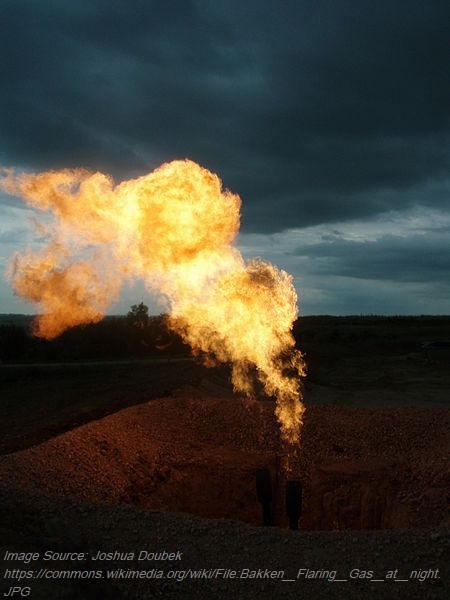Mothers & Others For Clean Air’s Dr. Anne Mellinger-Birdsong spoke yesterday (12/2/21) at the EPA hearing on a proposed methane standards.
Methane itself is bad for health and when it leaks, VOCs also leak with it, and methane is a potent greenhouse gas. The EPA proposed standards are a good step, but need to be stronger.
Here is the testimony from Dr. Anne Mellinger-Birdsong:
Comments for EPA Methane Proposed Rule Hearing 12/02/2021
Anne Mellinger-Birdsong, MD, MPH, FAAP on behalf of Mothers & Others For Clean Air
Mothers & Others For Clean Air supports EPA’s proposed methane rules, and we urge EPA to make them even stronger to better protect health.
Methane has both direct and indirect effects on health. It is an actual air pollutant, it contributes to formation of other air pollutants, and it is a potent greenhouse gas causing climate change. In all of the health effects caused by methane, children and vulnerable communities are most impacted. Children have a higher metabolism, higher minute ventilation, and spend more time outside, so they are more affected by air pollution. Communities of color and other front-line communities are more exposed to methane production and transmission, and therefore more exposed to the leaks that occur throughout production and transmission.
As a direct air pollutant, methane has been linked to causing debilitating migraines, and is a volatile organic compound (VOC) that contributes to ozone formation. Ozone is hazardous to health, causing lung damage and respiratory diseases, making COPD worse, triggering asthma and COPD attacks, and it is linked to numerous other health problems. Methane causes increased mortality in Medicare recipients, and it is even more deadly for seniors who are black. (1) A recent study found that implementing methane control measures would reduce ozone and could avoid half a million premature deaths worldwide. (2) Another study found that the ozone reductions from mitigating methane can be valued at $800 to $1800 per metric ton of methane. (3) Another scientific study found that ozone was as bad for people with emphysema as smoking a pack a day of cigarettes. (4)
When methane leaks, other VOCs also leak. Many of these other VOCs are dangerous to health and can be carcinogenic (benzene, toluene, and others). Reducing methane leaks will also reduce other VOCs which will vastly improve our health. This is especially important for people living near wells, along transmissions lines, and who have methane-fueled appliances such as stoves, water heaters, or furnaces in their homes. Because of our country’s history of environmental racism, methane wells and transmission lines are located in or near communities of color, causing disproportionate exposure and health disparities.
Methane is one of the most potent greenhouse gases. CLIMATE CHANGE IS A HEALTH EMERGENCY (5, 6, 7). The recent IPCC report calls climate change a code red for humanity, while also noting we still have time to make major changes. Even though it does not persist in the air as long as CO2, because it is so much more potent, a pound of methane traps 30 times more heat than a pound of CO2 over the span of 100 years. Reducing methane now will have a large impact on our efforts to tackle climate change.
Where I live in Georgia, we are already facing disruption, illness and deaths from climate change: hurricanes, flooding, extreme heat, wildfires and air pollution from wildfires, and evacuations from climate disasters. Thousands of people, including children, are dealing with anxiety and stress from living near disasters or PTSD from living through a disaster.
This proposed methane rule will help address climate change by reducing one of the most potent greenhouse gases that exists. However, it needs to be stronger. There is no logical reason why we should have a standard that doesn’t fully protect health. We have the tools and technology to meet stronger standards, because some states already have strong standards. We need to eliminate venting and flaring, close loopholes, and inspect ALL wells for leaks. Children living near gas wells are just as vulnerable to the health effects of methane and associated VOCs no matter who or how large the company is that owns the well. EPA needs to respond to the scientists and health experts urging stronger standards, and set standards without loopholes that are fully protective of human health.
References:
- Di, Wang, et al. Air Pollution and Mortality in the Medicare Population. N Engl J Med 2017;376:2513-22. DOI: 10.1056/NEJMoa1702747
- Anenberg, et al. Global Air Quality and Health Co-benefits of Mitigating Near-Term Climate Change through Methane and Black Carbon Emission Controls. https://ehp.niehs.nih.gov/doi/full/10.1289/ehp.1104301
- Sarofim, et al. Valuing the Ozone-Related Health Benefits of Methane Emission Controls. Environ Resource Econ (2017) 66:45–63. DOI 10.1007/s10640-015-9937-6
- Wang, et al. Association Between Long-term Exposure to Ambient Air Pollution and Change in Quantitatively Assessed Emphysema and Lung Function. JAMA. 2019;322(6):546-556. doi:10.1001/jama.2019.10255
- Atwoli, et al. Call for Emergency Action to Limit Global Temperature Increases, Restore Biodiversity, and Protect Health. N Engl J Med 2021; 385:1134-1137 DOI: 10.1056/NEJMe2113200 (OpEd published simultaneously in 200 medical journals)
- Romanello, et al. The 2021 report of the Lancet Countdown on health and climate change: code red for a healthy future. The Lancet. DOI:https://doi.org/10.1016/S0140-6736(21)01787-6
- IPCC, 2021: Summary for Policymakers. In: Climate Change 2021: The Physical Science Basis. Contribution of Working Group I to the Sixth Assessment Report of the Intergovernmental Panel on Climate Change [MassonDelmotte, V., P. Zhai, A. Pirani, S.L. Connors, C. Péan, S. Berger, N. Caud, Y. Chen, L. Goldfarb, M.I. Gomis, M. Huang, K. Leitzell, E. Lonnoy, J.B.R. Matthews, T.K. Maycock, T. Waterfield, O. Yelekçi, R. Yu, and B. Zhou (eds.)]. Cambridge University Press
12/03/2021





